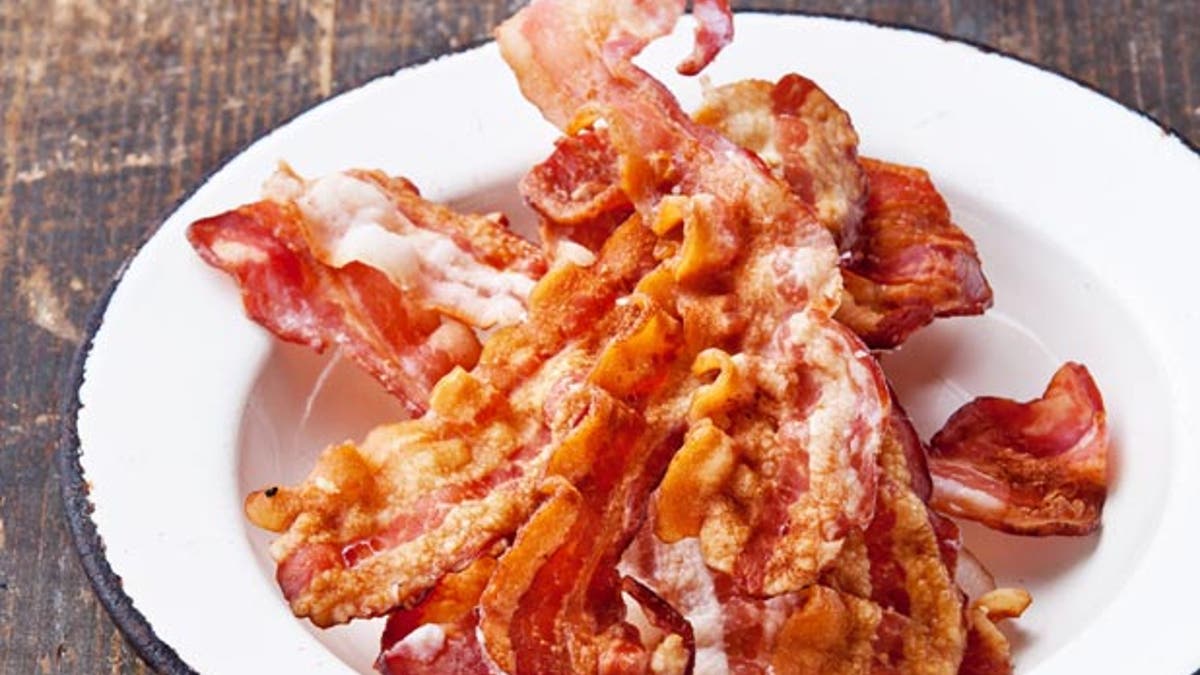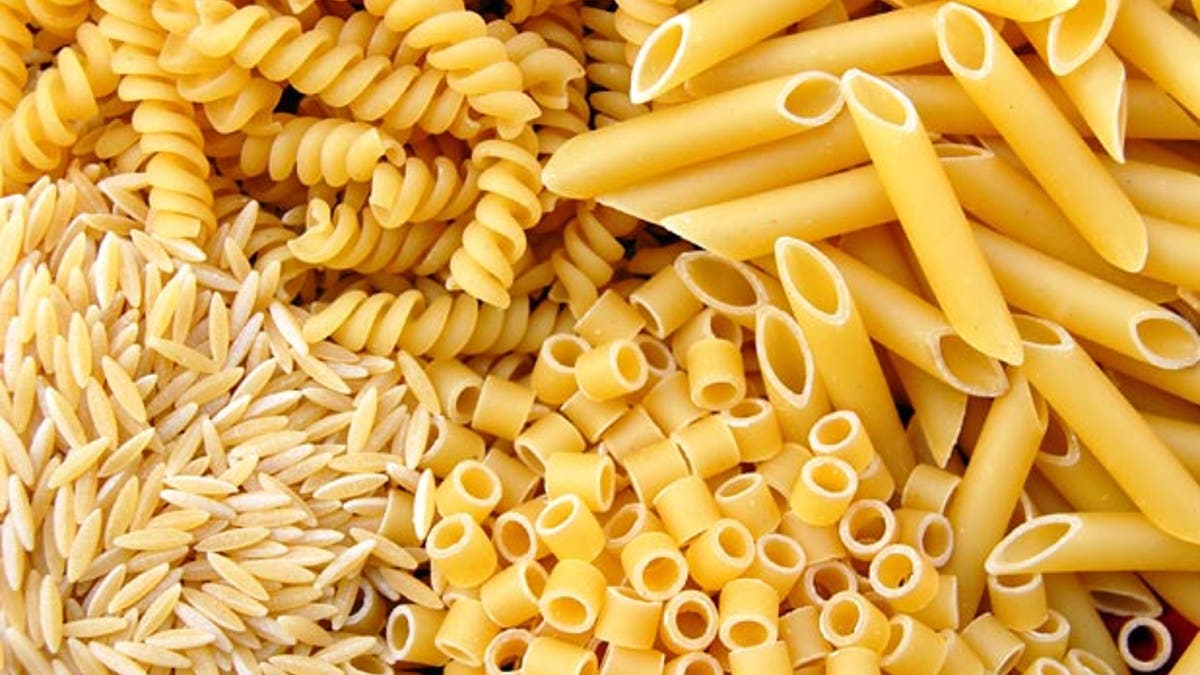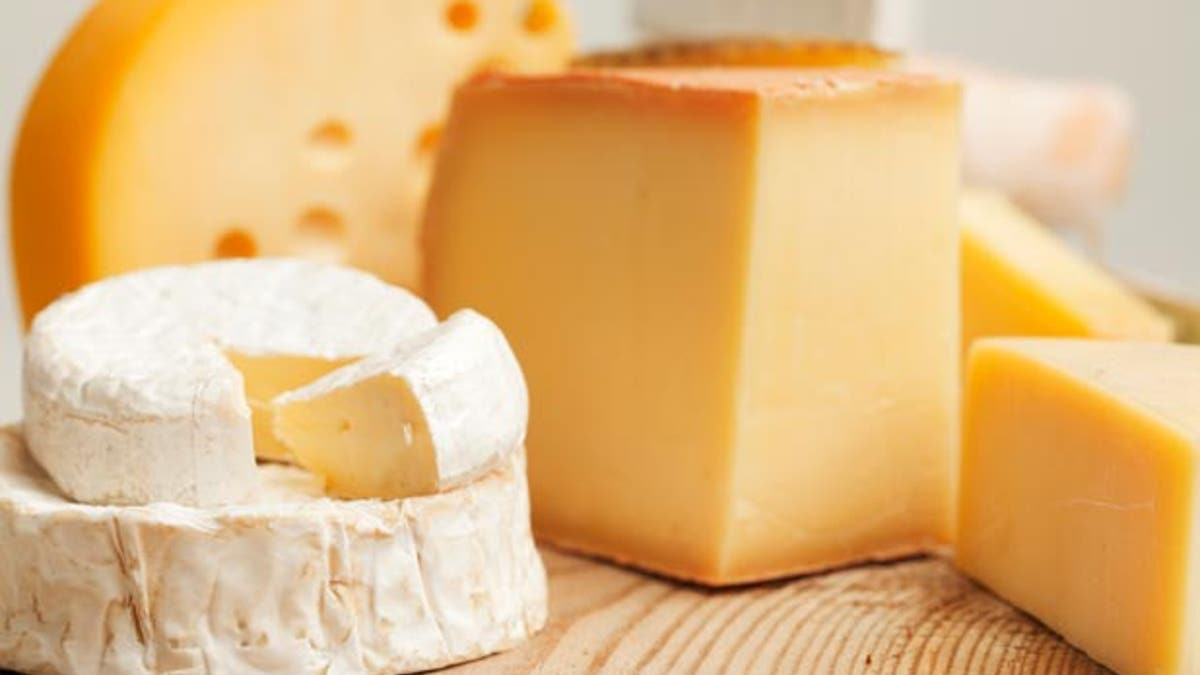It’s a little odd to think of the fact that every single word that we say, in any language, has its origins somewhere. From bacon to bread, the name of every single food in existence also got its start somewhere. We rounded up the most essential foods around, did some digging, and tracked down where their names came from.
Like most English words in general, the names of most foods are Latin in origin. But that doesn’t mean that every word has ancient roots: certain foods, like sandwiches, are named after people. Many foods have roots with the cultures that first brought them to English-speaking countries; foods that were popular with Eastern European Jews, for example, continue to bear monikers similar to the ones bestowed on them centuries ago.
The culinary world is a living, breathing thing, and new foods are being invented all the time. The current rage is portmanteaux, or the fine art of taking two food names and combining them into a completely new word. Take the Cronut, for example, invented last summer by pastry chef Dominique Ansel. It’s an amalgam of the words croissant (which is French for ‘crescent’) and doughnut, a word which was actually first written down by writer Washington Irving, who described them as "balls of sweetened dough, fried in hog's fat” in his 1809 History of New York (they were most likely closer in resemblance to doughnut holes, which look more or less like “dough nuts”).
So next time you’re munching away on a bagel, take a second and remember that once upon a time, there was no word for that delicious orb of dough, and some baker thought long and hard before christening it accordingly. Maybe one day, when you’re tinkering around in your kitchen at 1 a.m., you too can invent a food that nobody’s ever eaten before, and you can invent a food name as well. In that case, we’d suggest brushing up on your Latin.
Read on to learn the origins of the world’s most popular foods.
1. Bacon

(iStock)
The word “bacon” actually has a fairly lengthy back story, but the word itself has the same Old French origin as the word “back,” according to the Oxford English Dictionary. Back bacon is commonly found in England and is comprised of the loin with a small amount of belly attached.
2. Pasta

(iStock)
Pasta is obviously an Italian word, and its origins date back to the ancient Greeks, who used the word pastos to refer to anything salted. The word morphed into pasta and came to mean barley porridge, and then the Romans took the word and used it to refer to any type of dough. The noodles that we refer to as pasta today didn’t make their way to Italy until the Arabs introduced it to Sicily in the ninth century.
3. Pizza

(iStock)
The word pizza has the same origins as the word pita; they both date back to the Greek word pitta, meaning “solid,” and the later Latin verb pìnsere, meaning “to press.” When you look at the way that dough is pressed down and flattened, it makes a lot of sense.
4. Cheese

(iStock)
The earliest form of cheesemaking dates back more than 5,000 years, but the earliest known word for cheese is the Latin caseus. As the years went on and the Romans began to make hard cheese (as opposed to soft, fresh cheese), they added a second word to describe it, formatus, meaning “formed.” Hence the Italian word for cheese, formaggio.
5. Bread

(iStock)
Bread is one of the oldest prepared foods known to man, and the word bread itself is an Old English word. It dates back to the earliest Germanic languages, with a root that originally meant either brew (as in letting the dough ferment like beer before baking), or break (as in broken pieces of bread).
See more food names at The Daily Meal
More from The Daily Meal
11 Things That Shouldn’t Taste Like Bacon, But Do
